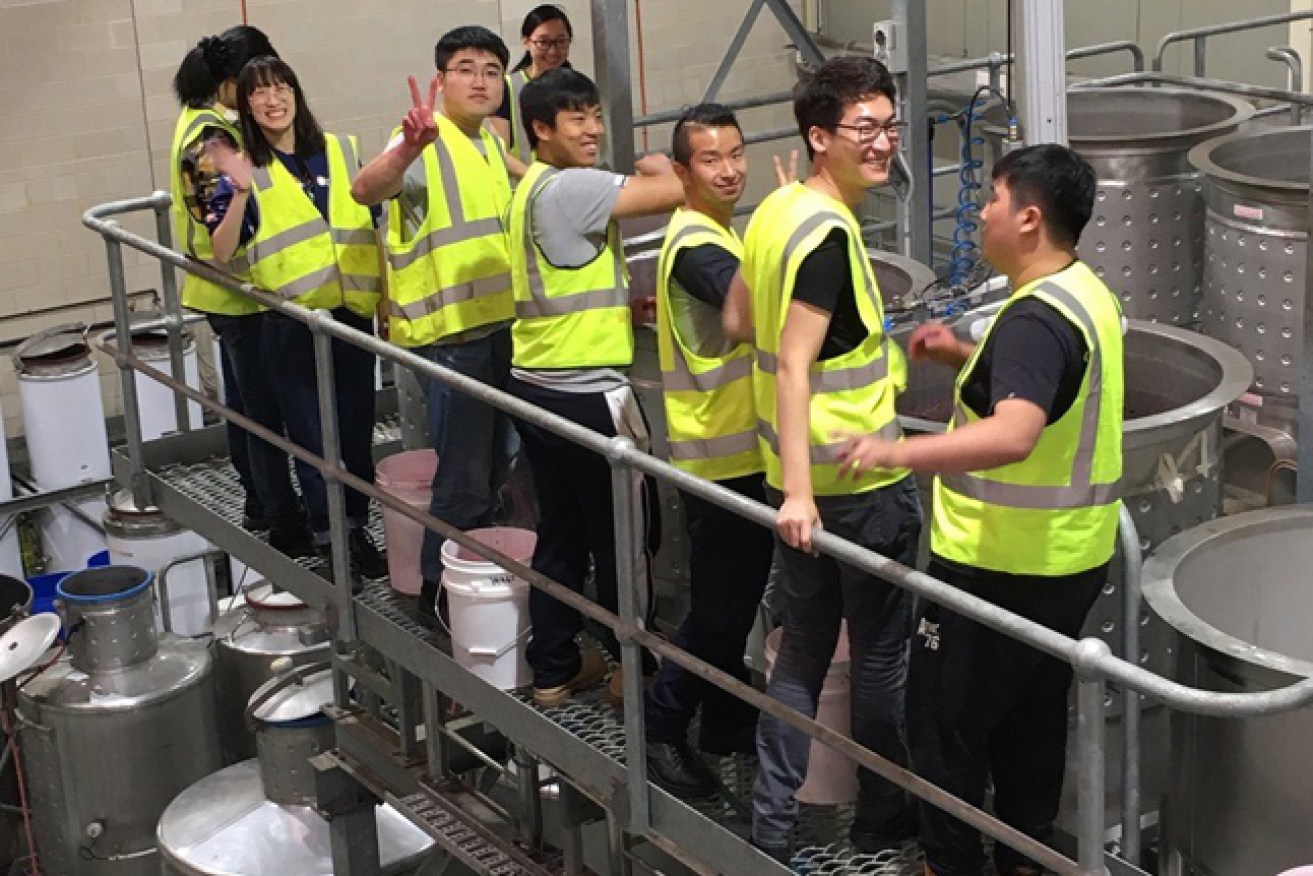Chinese winemaking students flock to Adelaide
Scores of Chinese students are heading to South Australia to study winemaking to fuel China’s huge domestic wine industry.


The University of Adelaide has seen an almost three-fold increase in Chinese enrolments in the past five years in its winemaking courses, which are the most comprehensive university courses for viticulture and oenology in Australia.
The university offers a four-year Bachelor degree in Viticulture and Oenology as well as a postgraduate Diploma and Masters courses. It has about 280 students across the three courses, 41 per cent of whom are Chinese.
In 2016, there were 114 students from China studying Viticulture and Oenology at the university, compared with just 44 in 2013. Numbers for 2017 are yet to be finalised because of the upcoming mid-year intake.
“That’s a significant change in five years,” School of Agriculture, Food and Wine Associate Professor Paul Grbin said.
“About 90 per cent of our international students now are from China and that’s primarily in our post-graduate programs but we have a reasonable percentage in our undergraduate programs, too.
“Our numbers have grown overall as well, so we are not getting fewer international students from our traditional markets such as the United States, Canada, South Africa, South America and a few Europeans.”
According to the Organisation of Vine and Wine, Australia is the fifth-largest wine-producing nation, making close to 1.3 billion litres. China is sixth, with an estimated 1.15 billion litres.
China last year overtook the United States to become the biggest buyer of Australian wine following a 40 per cent growth in sales for 2016. Exports of wine to mainland China rose from $A370 million in 2015 to $520 million in 2016.
Despite the huge size of the imported wine market in China, about 80 per cent of the wine consumed there is produced domestically.
“The local industry now has a bigger vineyard area than Australia and they are striving to improve, and part of that is a thirst for knowledge so they’re moving to countries like Australia to learn best practice,” Assoc Prof Grbin said.
“There’s definitely a sense when I talk to the [Chinese] students that there’s excitement around the development of the industry in China, and there are plenty of good opportunities for them when they graduate to work not only in China but in the international wine trade.
“There’s certainly a recognition in China that wine has become an important business proposition, so it’s on the strength of that that we have seen an increase in students coming not only for us in oenology and viticulture but also in the wine business program.”
Post-graduate student Huiyi Hu came to Adelaide to gain more practical winemaking experience.
“I studied winemaking for four years in China from 2010 but I didn’t learn how to make real wine,” she said.
“I wanted to know more about winemaking so I came here where the course is good.
“Here I make my wine in a winery and solve any problems with group discussions, rather than just following instructions.”
In December, the University of Adelaide revealed preliminary plans to expand its teaching and research winery to cater for growing demand.
The university has also had remarkable success with a free online MOOC (Massive Open Online Courses), World of Wine: From Grape to Glass, which has been studied by almost 80,000 students from more than 160 countries.
The course, originally offered on the edX platform and also affectionately known as Wine101x, has been translated into Chinese in partnership with Chinese MOOC platform XuetangX.
In China, more than 4600 students enrolled in the first six-week course and another 14,300 have enrolled in the ongoing self-paced course.
“It’s not a direct marketing ploy to increase the number of students coming to the university to study wine but it certainly does raise the university’s profile in China,” Assoc Prof Grbin said.
“It’s also about providing a service – certainly as China develops its wine culture there’s a real desire to understand wine a bit more and this MOOC is a pretty straightforward and simple approach to develop a solid understanding of how grapes are grown and wine is made.
“I can only envisage that it will become more and more popular as it becomes more widely known that it’s there.”
Chinese students accounted for almost 40 per cent of the 32,000 in international students who studied in Adelaide in 2015.
This article was first published on The Lead.




